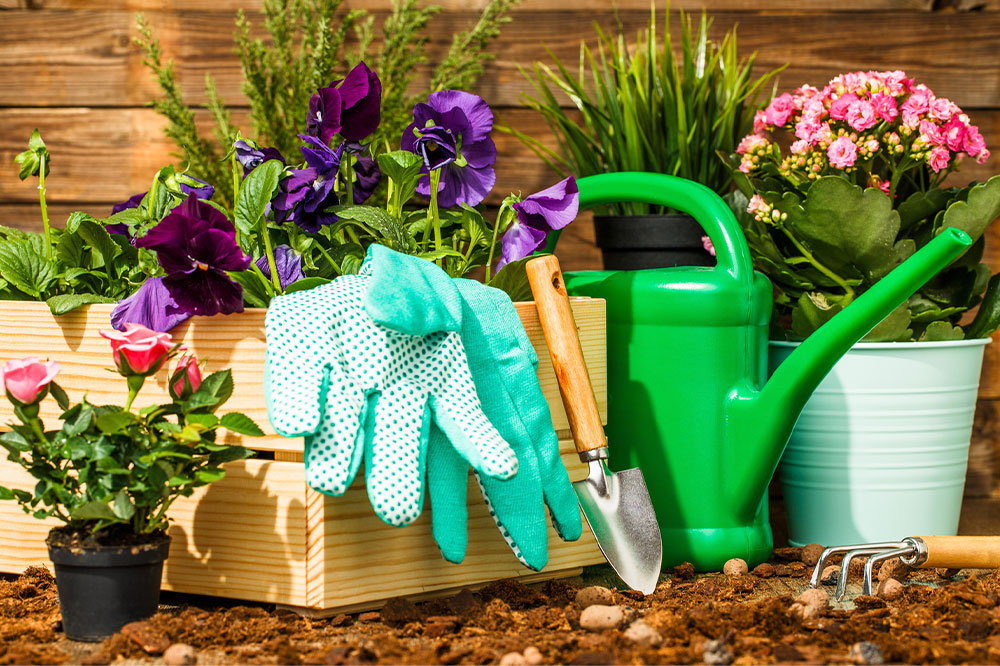
8 useful gardening tips for beginners
People take up gardening for various reasons. Some are fascinated by the idea of growing their own vegetables and fruits and feeding their family with fresh produce, while others just pursue gardening as a hobby. If you want to start gardening but have no experience, read on. Below are a few tips and tricks experts often give beginners to ensure they enjoy the activity and avoid making mistakes that harm their plants.
Start small
Instead of growing plenty of saplings right from day one, start with two or three that interest you. Since it’s your first gardening attempt, doing so will make it easier for you to look after the plants. You don’t want to overcrowd your patch of land with different fruits and veggies and struggle to maintain them. Starting small will also ensure you don’t exceed your budget and make the journey ahead difficult.
Think about the soil
As a gardener, you must nurture and protect the soil using sustainable plant growth practices. Adding compost not marred by chemicals like pesticides is a great way to build and maintain healthy soil. You can use dry leaves and kitchen scraps if you don’t want to spend much on store-bought compost. Using rabbit manure and poultry droppings for composting is also a great idea.
Pace yourself
Once you start gardening, you’ll learn that some crops don’t need to be harvested entirely and planted again. When you’ve sown the seeds and the vegetables or fruits have grown, you can reseed the plant. This means a $3-$5 pack of seeds will last longer, reducing waste.
Avoid being sucked into purism
Organic fruits and vegetables are the future of the food industry, but don’t start your gardening journey sticking to pure organic produce. You might be setting yourself up for failure with this aim. Growing organic produce requires following several USDA regulations and standards, which is usually impossible for beginners. Some organic plants require more time and effort to grow than others and may be more expensive to maintain in the long run.
Monitor pest activity
If you aren’t careful, pests can damage your produce, wasting time, money, and effort. The better you handle pest growth and activity, the higher your chances of a better harvest. You may use row covers to cover your plants and diatomaceous earth to eliminate pests. But before taking any step, differentiate the insects that help with your gardening activity from those that cause trouble. If you don’t want to use chemical-laden pesticides, try home remedies or organic solutions that help your cause.
Save the seeds
It’s okay if some produce from your first harvest doesn’t turn out good. When it’s time to switch to the new gardening season, save the seeds from your best produce and use them later or exchange them with another variety from other home gardeners. Heirloom and open-pollinated seeds are among the best quality seeds to buy that lower the chances of spoilt produce. For authentic produce, avoid GMO and hybrid seeds. If you have friends in the community, borrow some of their overgrown garlic, strawberries, and other plant starters, buy pots, and use them for your garden.
Use the right tools
Every person needs the right tools for their specific trade. Instead of stalking up on everything the market offers, start with the basic gardening tools you might already have in your garage shed, such as a shovel, gloves, spade, scissors, trowel, and gardening fork. You might also want to buy pots to organize your garden space and grow specific plant varieties.
Choose the right type of plants
Beginners often find it hard to choose plants for their garden. An important tip is to start with indoor plants that are easy to care for and help you learn different maintenance tasks. Plants like the Golden Pothos, snake plants, and spider plants are excellent non-flowering plants to grow indoors. Moon cacti, echeveria, and holiday cacti are also suitable for beginners. If you’re a fan of lilies, bring home a peace lily and watch it bloom.
As a beginner, choosing the right plants for your garden patch is essential. Learn about your garden’s growing conditions and soil quality and how much sunlight each plant requires. Also, check which season suits the plants you’re considering and their growing period. If confused, visit a home garden in the community and ask the owner for guidance. An experienced gardener will answer all your questions and help you avoid mistakes that can ruin your new activity and cause you to give up.




